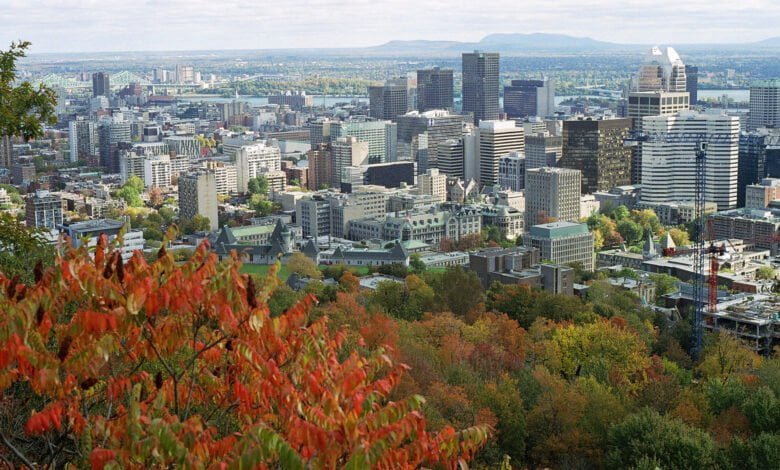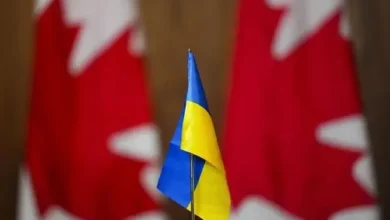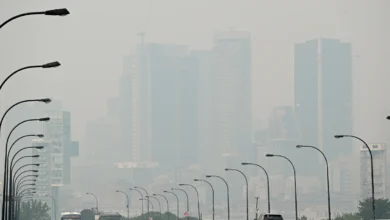Montreal faces various urban-policy challenges, which require a comprehensive and multi-faceted approach to tackle them effectively. One of the biggest challenges is the need to address growing urbanization and population growth while maintaining a balance between economic development, social well-being, and environmental sustainability. This challenge is having significant effects on the city’s land use and mobility, resulting in issues such as traffic congestion, air pollution, and insufficient affordable housing.
The city is currently working on its 2050 Urban Design and Mobility Plan (PUM 2050), which takes a long-term approach to address these challenges and develop solutions that integrate economic, social, and environmental factors. The plan aims to promote sustainable and inclusive urban development by focusing on new technologies, active mobility, public transportation, architecture, urban design, and social acceptability.
Another major challenge for Montreal is developing an efficient and affordable public transit system that meets the needs of its growing population. The city has been investing in the expansion of the metro system, and upgrading and electrifying the bus system to reduce greenhouse gas emissions. However, with the increasing demand for public transport, the city needs to continue to explore innovative solutions to improve its public transport network.
Montreal also needs to create more affordable housing options in the city. With the rising cost of living, many residents find it difficult to find affordable and adequate housing options. The city aims to develop new policies and regulations that encourage the development of affordable housing while ensuring that it meets residents’ needs.
Montreal is confronted with several urban-policy challenges that require careful attention and strategic solutions. One such challenge is the decrease in downtown workers as remote work becomes more prevalent. To ensure the vitality and vibrancy of the downtown area, Montreal must explore innovative approaches to revitalize it and attract businesses and workers.
Montreal’s public transportation system is a critical area that requires improvement. The city has been increasing its investments in transit infrastructure, including expanding its metro network, adding new tram lines, and improving bus services. However, more needs to be done to make the transportation system more efficient and accessible to the city’s residents.
Improving the public transportation system can have significant benefits for the city’s population. A more efficient transport network can alleviate traffic congestion, reduce carbon emissions, and improve air quality. By investing in low-carbon technologies and alternative fuels, the city can create a more sustainable public transportation system that aligns with its environmental goals.
Additionally, enhancing the public transit system can improve residents’ mobility and quality of life. It can provide better connectivity to various parts of the city, including areas with limited or no access to transportation. It can also provide safer and more affordable transport options, especially for underprivileged communities.
To improve its public transportation system, Montreal needs to consider innovative solutions such as introducing new technology, expanding bike-sharing programs, and improving pedestrian infrastructure. The city can also explore the use of autonomous vehicles, electric buses, and other low-emission vehicles to create a more sustainable transportation system.
Improving Montreal’s public transportation system is crucial for sustainable urban development and enhancing residents’ quality of life. The city needs to continue its efforts in expanding its transit infrastructure, investing in low-carbon technologies, and promoting alternative transport modes. By doing so, it can create a more efficient, accessible, and sustainable public transportation network that meets the needs of its growing population for years to come.
The aging infrastructure presents another pressing issue for Montreal. The city must prioritize the repair and maintenance of its roads, bridges, and water systems to ensure the safety and functionality of its built environment. Addressing these infrastructure needs is essential to maintain a high quality of life for residents and support the city’s overall development.
Additionally, Montreal faces challenges in fulfilling its commitment to providing social and affordable housing. As housing affordability becomes an increasing concern, the city must take proactive measures to deliver on its promise and ensure that residents have access to suitable and affordable housing options.
Furthermore, Montreal recognizes the importance of diversifying its revenue sources to reduce dependence on taxation. Currently, approximately 63% of the city’s revenue comes from taxes, highlighting the need to explore alternative funding streams. By diversifying revenue sources, Montreal can fund infrastructure projects, social initiatives, and essential services more sustainably, ensuring long-term financial stability and growth.
In addressing these urban-policy challenges, Montreal demonstrates its commitment to fostering a thriving and inclusive city. By revitalizing downtown, improving public transportation, repairing infrastructure, providing affordable housing, and diversifying revenue sources, the city aims to enhance the overall quality of life for its residents while creating a sustainable and resilient urban environment.
Montreal recognizes the current shortcomings in its urban policies and is actively taking steps to address them through various infrastructure projects. One significant area of focus is major road construction, with plans for 51 projects this summer that encompass roads, highways, overpasses, bridges, and tunnels. To ensure the safety and quality of Montreal’s transportation infrastructure, the Quebec government has pledged an additional $1 billion for repairs and improvements.
In addition to road projects, Montreal is also embracing innovative mobility solutions to enhance neighborhood life and accessibility to food. The city is investing in the conversion from car travel to the Réseau express métropolitain (REM), a rapid transit system, as a means to alleviate congestion and achieve greenhouse gas emissions reduction targets. This shift in transportation aligns with Montreal’s overarching goal of achieving carbon neutrality by 2050.
To fund these infrastructure endeavors and support ongoing initiatives, Montreal is actively exploring diverse revenue sources. By seeking alternative funding streams, the city aims to sustain its investments in innovative mobility solutions and improved access to food, contributing to vibrant and efficient neighborhood communities.
Furthermore, the Port of Montreal is engaged in several projects that will further enhance the city’s infrastructure. These initiatives include the expansion of a new terminal in Contrecœur, the finalization of the Viau Terminal project, and the construction of the Port of Montreal Tower. These developments at the port will bolster its capacity and capabilities, facilitating trade and economic growth for the city.
Moreover, Montreal is demonstrating a proactive approach to address urban challenges by implementing infrastructure projects, exploring innovative solutions, diversifying revenue sources, and investing in its port facilities. Through these efforts, the city aims to improve its overall infrastructure, enhance mobility, and create a sustainable and prosperous future for its residents.
Overall, Montreal is investing in resilient infrastructure that serves all. The city is also hosting the 12th Global Infrastructure Leadership Forum, where infrastructure decision-makers come together to present more than $150 billion in infrastructure projects. Montreal faces several complex urban-policy challenges, including managing population growth, improving public transit, and creating more affordable housing options. Addressing these challenges will require a comprehensive and multi-faceted approach, utilizing innovative solutions, collaborations, and long-term planning to ensure sustainable urban development.
More to Know
Other urban-policy challenges facing Montreal include sprawl, which is a concern for urban planners, and the need for a green belt to curb urban sprawl and protect natural assets. Montreal also needs to address the challenges of sustainable development and increase urban canopy diversity and surface area.
Moreover, Montreal faces several infrastructure challenges, including the need to repair its aging infrastructure, such as roads, bridges, and water systems; to address this issue, Quebec’s government has committed to spending an extra $1 billion to repair Montreal’s roads and overpasses and make them safer. Montreal’s Resilient City Strategy also aims to invest in resilient infrastructure that serves all.
Montreal is also looking to diversify its revenue sources to fund infrastructure projects. The city is banking on a major conversion from car travel to the Réseau express métropolitain (REM) to recuperate its investment and relieve road congestion in an effort to meet GHG emissions reduction targets in line with Montreal’s objective of carbon neutrality by 2050.
Lastly, Montreal is hosting the 12th Global Infrastructure Leadership Forum, where infrastructure decision-makers come together to present more than $150 billion in infrastructure projects. The city is also looking to invest in innovative mobility solutions and access to food to shape an efficient and dynamic neighborhood life.
Also read: Social and Affordable Housing: A Challenge for the Plante Administration in 2023




